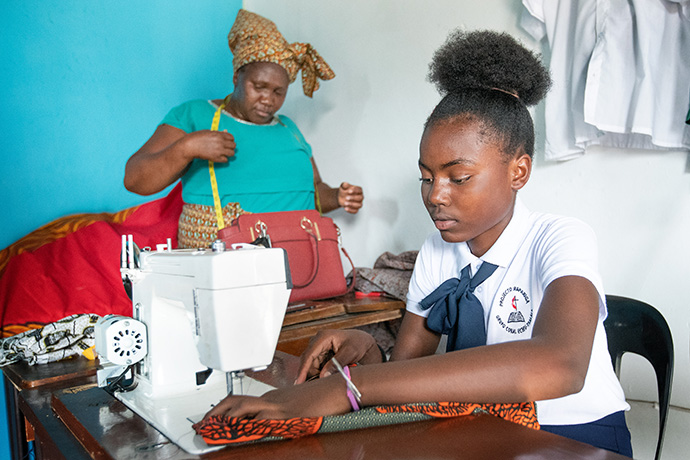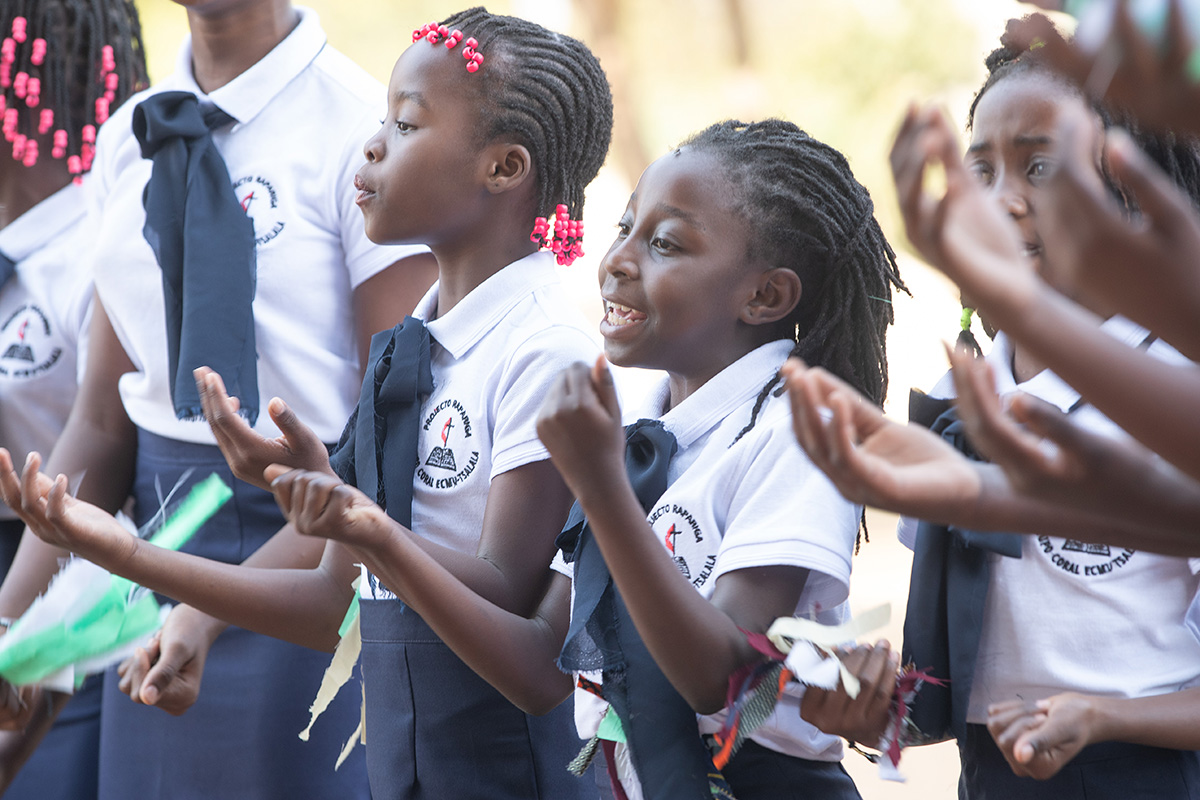Key Points:
- The United Methodist-supported Tsalala Training Center in Mozambique teaches girls and teens tailoring and other skills.
- The center also educates young women about early marriages and other social issues that plague those living in poverty.
- Although it is not the church’s intention for the participants to become United Methodists, students are taught about The United Methodist Church and following Christian principles.
The United Methodist Tsalala Training Center is helping to give girls and young women the skills they need for a brighter future.
In Mozambique, more than two-thirds of students drop out of school by the fifth grade. For girls, numbers are even higher, often leading to premature marriages and adolescent pregnancies.
The Tsalala Training Center, located about 12 miles from Mozambique’s capital of Maputo, trains girls and young women ages 10 to 23 in tailoring, fashion and design.
An initiative of Tsalala United Methodist Church, the center started in 2008 with 15 girls and that number has continued to increase. More than 100 girls and young women have participated in the training and advocacy program to date.
“The whole idea of this center was started by the Tsalala United Methodist Church after realizing a high number of school dropouts and the need to assist underprivileged girls from our community,” said Jenifa Lourenço Luis, executive secretary for United Methodist Women in the Mozambique South Conference.
“The vision of the church is to see the center growing in a Christian way, practicing religious morals and values,” she said.

Rute Andre Uetela Uthui, program director, said the students also are taught valuable life lessons.
“Besides making clothes, girls are taught how to live in their communities.”
Participants are encouraged to abstain from sex, as they learn about sexual protection, sexually transmitted diseases and other illnesses.
“Various teachings on prevention of child marriages are also done since such acts are very popular in our communities,” Uthui said.
Muzia Monjane, a grade six student tailor, started training in July. “I’m enjoying what I’m learning. When I am at home, I make clothes for everyone. I am learning a lot.”
Uthui said there were originally two training centers — one in Moamba and one in Tsalala — but due to lack of attendees in Moamba, the church decided to centralize everything at the Tsalala center.
Subscribe to our
e-newsletter
In addition to the practical support, church leaders focus on spiritual growth through the program, said Pastor Afonso Luisa Rungo, chaplain at United Methodist Tsalala Primary School, which sits on the same property as the church center.
“Although it is not the church’s intention to turn them into United Methodists, when they are here, we (prepare them to follow) UMC and Christian principles,” Rungo said.
Despite the center’s success, difficulties remain.
“The center has the potential of growing,” said Rosa Geraldo, who chairs the church’s school council. “Currently, we are facing challenges of inadequate space and facilities for practical training, which hinders the learning experience. This center has a very limited budget, with only three teachers receiving very low salaries.”
Uthui said the center was initially supported by Mozambique Area Bishop Joaquina Filipe Nhanala and now receives funding from the Mozambique South Conference and the United Methodist Board of Global Ministries through Advance #3022307.
“(This) is very helpful to support our ministry,” Uthui said of the recent Advance setup.
She said the support helps the center play a vital role in empowering participants with essential skills.
“Many of the trainees come from disadvantaged backgrounds,” Uthui said. “This training equips them with a tangible skillset that can lead to employment opportunities or entrepreneurial ventures.
“This holistic approach aims to nurture not only skilled seamstresses but also independent, resourceful young women.”
Makunike is the director of communications for the South Africa Conference of The United Methodist Church.
News media contact: Julie Dwyer at (615) 742-5470 or newsdesk@umnews.org. To read more United Methodist news, subscribe to the free Daily or Weekly Digests.




